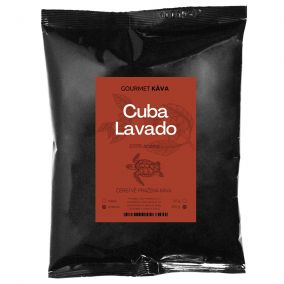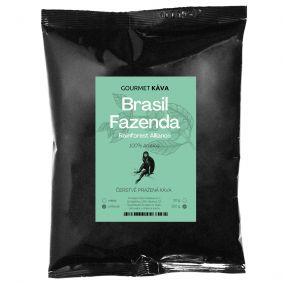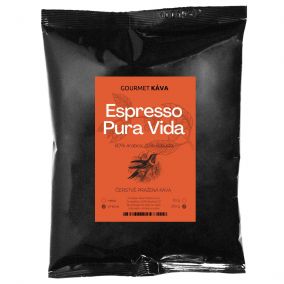Does it even exist? What are its manifestations and is it possible to deal with it?
A drink that gives one person energy, concentration and a sense of well-being can make another person's life pretty unpleasant. It starts when the person in question suffers from a coffee allergy.
Coffee allergy symptoms
Coffee allergy is not particularly different from other food allergies. Here too, we can observe a range of symptoms from the mildest to the quite dangerous:
-
nausea, vomiting;
-
abdominal cramps;
-
skin manifestations - itchy rash, etc.;
-
breathlessness, cough;
-
swallowing problems;
-
dizziness, feelings of fainting;
-
itching or swelling of the lips and tongue;
-
disorders of the heart rate.
In extreme cases, anaphylactic shock can occur, so even moderate symptoms usually require the necessary attention or medical intervention.
Allergy vs. overdose
It is a good idea not to confuse allergy symptoms with those that can accompany a caffeine overdose, which include the following:
-
insomnia;
-
stomach upset;
-
headache, increased nervousness;
-
rapid heartbeat;
-
muscle tremor.
Everyone has probably encountered some of these at some point. People can also differ quite substantially from each other in their sensitivity to the effects of caffeine. It depends on how quickly the body is able to metabolize caffeine. And the degree of tolerance will also play a role, of course.
A person who drinks coffee regularly, i.e. daily, can usually tolerate a higher dose of caffeine without much difficulty. In contrast, a person who consumes coffee sporadically is likely to react more strongly to excessive intake.
Is it really a coffee allergy?
We should mention that coffee allergy is not very common. If you are experiencing any unwanted symptoms after drinking coffee, think also about whether they are necessarily caused by coffee and could be a reaction to an ingredient in the coffee - most often milk, or various flavouring syrups - if it is a sugar-free product sweetened with artificial sweeteners, you may be reacting negatively to one of the ingredients.
The solution is to brew a good quality, additive-free coffee at home (or order from a café) and test how you tolerate the drink.
Coffee allergy = caffeine allergy
In most cases, this rule applies. This means that you also need to be wary of other types of drinks or foods that might contain caffeine (teas, sodas, chocolate, energy drinks, bars, some nutritional supplements, etc.).
People who metabolize caffeine slowly usually have problems. However, it is not always an allergy as such, in many cases the problems are diagnosed as caffeine intolerance. This is not nearly as dangerous as the allergy itself. When an allergy occurs, the body identifies caffeine as clearly harmful and as a result the immune system begins to secrete antibodies, which then triggers the cascade of adverse effects discussed above.
Is there a cure?
The solution for people with caffeine intolerance is to consume decaffeinated coffee, or to significantly reduce the consumption of regular coffee. Decaffeinated coffee will not cause difficulties for most, as the residual amount of caffeine is very small indeed.
In the case of an allergy, everything must be assessed by a medical professional, but definitely people with coffee/caffeine allergies should avoid risky ingredients in the first place. If they continue to consume them, even in small doses, there is a risk that their symptoms will escalate.
Lavado Coffee from the mountains in southeastern Cuba will surprise you with almost zero acidity and a strong flavor of bitter chocolate and caramel.
Lavado Coffee from the mountains in southeastern Cuba will surprise you with almost zero acidity and a strong flavor of bitter chocolate and caramel.
Guatemalan coffee Trés Maria stands out for its perfect balance and pleasant sweetness complemented by the taste of ripe tropical fruit.
Guatemalan coffee Trés Maria stands out for its perfect balance and pleasant sweetness complemented by the taste of ripe tropical fruit.
Extremely low acidity and chocolate taste are combined in Brazil Fazenda Rainforest coffee, by purchasing which you support the idea of an ecological and socially friendly way of growing coffee .
Extremely low acidity and chocolate taste are combined in Brazil Fazenda Rainforest coffee, by purchasing which you support the idea of an ecological and socially friendly way of growing coffee .
Ethiopia gave coffee its name after the Ethiopian province of Kaffa, so it is no surprise that one of the best coffees in the world is grown there.
Ethiopia gave coffee its name after the Ethiopian province of Kaffa, so it is no surprise that one of the best coffees in the world is grown there.
A unique blend of 5 types of Arabica from Central and South America, supplemented with quality robusta , for an espresso full of flavor, strength and quality crema.
A unique blend of 5 types of Arabica from Central and South America, supplemented with quality robusta , for an espresso full of flavor, strength and quality crema.
Cuba Lavado, whole bean Arabica coffee
Guatemala Trés Maria, whole bean arabica coffee
Brazil Fazenda Rainforest, whole bean arabica...
Ethiopia Sidamo, arabica coffee beans
Espresso blend Pura Vida, whole bean coffee

































































































